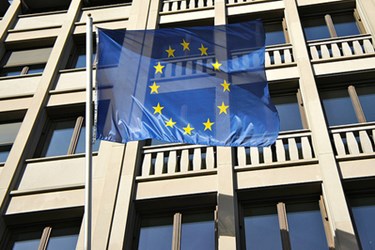Are Unannounced Audits The New Norm For EU Devicemakers?
By Nick Otto

The European Employment, Social Policy, Health, and Consumer Affairs (EPSCO) Council recently discussed the actions taken on behalf of the European Commission and member states with regard to the current level of confidence consumers have with the industry following the breast implant scandal by the now defunct Poly Implant Prothèse (PIP).
“Consumers are safer today than they were when the PIP scandal was discovered”, said Neven Mimica, commissioner for consumer policy. “Thanks to close cooperation between Member States and the European Commission, today's rules on medical devices are better enforced.”
Device makers holding CE certificates for devices of Class IIa and above should be prepared for unannounced quality system visits by notified body inspectors, according to regulations that took effect earlier this year.
The policy, laid out by the European Commission in two rules last September, applies to all manufacturers that have products in the European Economic Area, regardless of where their manufacturing plants are located.
One rule clarifies the criteria notified bodies must meet to operate in the EU, while the other describes the tasks they must perform when they audit and assess device facilities.
Subcontractors and critical suppliers are also subject to unannounced visits, which may happen at any point in the day or evening. The new rules require notified bodies to inspect manufacturers of high-risk devices once every two years. Medium- and low-risk devices will see auditors every three years, all according to Erik Vollebregt, a partner at Axon Lawyers in the Netherlands.
BSI Group, a UK-based notified body, is recommending its clients to train all appropriate staff to deal with the surprise visits. Should certain key staff members not be available on the day an unannounced audit occurs, or extenuating circumstances arise during a visit, BSI will review the circumstances and determine the best path to return to compliance. Such cases will be judged on a case-by-case basis, according to a frequently asked question document on BSI’s website.
Many European competent authorities, including the Medicines and Healthcare products Regulatory Agency (MHRA) and ZLG, have fully integrated unannounced visits into their routine inspections, according to BSI presentation materials. BSI has gradually increased its volume of routine visits since April and expects to be in full swing by this December.
In preparing for a visit, BSI recommends:
- Studying Commission recommendation 2013/473/EU;
- Factor additional visit costs into budget processes;
- Draft processes/procedures for receiving visits;
- Review critical subcontractors & crucial suppliers contracts;
- Communicate awareness across all staff and train staff;
- And most of all, practice.
